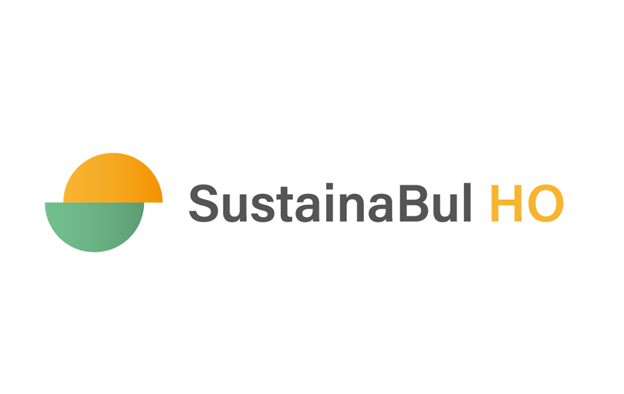SustainaBul: 21st place for THUAS in sustainability rankings
4 June 2024
On Friday 24 May, the SustainaBul ranking was presented at the Green Pepper, the sustainability event for the education of the future.

On Friday 24 May, the SustainaBul ranking was presented at the Green Pepper, the sustainability event for the education of the future. A ranking that rates higher education institutes in the Netherlands on sustainability. The Hague University of Applied Sciences ranked 21st this year. A total of 33 higher education institutes were scrutinised. In 2023, THUAS was ranked 15th, while in 2022 it was 20th. Van Hall Larenstein University of Applied Sciences won the SustainaBul for the fourth time in a row, followed by TU Delft in second place and Erasmus University in third. We warmly congratulate the winners.
THUAS scores
Each educational institute could score a total of 360 points. THUAS received 66.75 out of the maximum 110 points on education, which is a slight increase from 2023. This is partly because we show how each faculty and degree programme integrates the Sustainable Development Goals (SDGs) into their curriculum. This builds on the educational vision, embedding the SDGs in learning outcomes. The knowledge agenda, in which ‘Transition to sustainability’ is one of the themes, contributes to a fine score of 99.5 points (out of the maximum possible score of 110) on research. In particular, there are gains to be made in business operations. Like last year, we are already making great strides towards ZeroWaste by 2030 and Zero CO2 by 2040. However, SustainaBul indicates that we could be more transparent in what measures we specifically take and how students are involved. We can also develop further in areas such as water use, contribution to biodiversity and what (more) sustainable choices we make around our finances, for example when choosing banks. This made us get 47.5 out of 100 points with regards to the business operations domain. For best practices, we achieved the full score of 30 points. This brings us to a total score of 243.75 points.
Next year, we will take further steps, especially in the areas of education and business operations. Each degree programme describes in its curriculum how it implements sustainability and how it works on the Sustainable Development Goals. We are also working on staff member awareness around sustainability. Showing what we already do is important in this respect.
Read the full report here.
Integrating sustainability into THUAS' DNA
Every year, our participation in the SustainaBul provides valuable feedback from the assessors. This gives us a growing understanding of what we are already doing and where we can take steps. We also take this feedback into account in formulating the approach of the Sustainability and Justice programme. The purpose of the programme is to integrate sustainability and justice into the DNA of our university of applied sciences. In doing so, we facilitate the organisation in achieving the ambitions from the Strategic Plan 2023-2028, and make the themes of sustainability and justice more visible. Both internal or external.
What are we going to do?
The programme has four so-called work packages. Read a brief explanation below. The details of the work packages with concrete projects and activities are described in the action plan.
- Strengthening internal connection. Connection and activation in education, research and business through community building, awareness raising and engagement (events and communication).
- THUAS carbon neutral by 2040. Connecting and complementing existing ambitions, programmes and projects, starting from an institute-wide baseline measurement.
- Development and outward visibility. We analyse which initiatives we want to actively participate in nationally and internationally and which external rankings we want to participate in.
- Strengthening the implementation of the education vision and knowledge agenda. We recognise the shared responsibility in implementing these strategic visions, including through this programme.
By working together on the above points, we are working towards greater attention and focus to integrate sustainability and equity into THUAS' DNA.
About the SustainaBul
The SustainaBul has been organised by Students of Tomorrow since 2012 and assesses participating educational institutions using a questionnaire. The questions are divided between the themes of sustainability in research, education, operations, and best practices.
More information
For information on SustainaBul, please contact Veronika Brantova, Sustainability & Justice project manager, at [email protected].